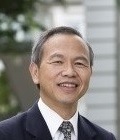Synopsis
The current patent system has been experiencing its historical stage of paradox. While it may promote innovation and investment to certain degree, it may also impede or even block development of technology and industry. It is noticed that, while some patents may be critically important for some industries, such as biotech industry or medicine industry, many more patents may remain mere documents in the database of patent offices. However, on the other side, operation of the patent system requires very high costs and its dysfunction or alienation may incur even higher costs for both industry and society. In a time of digital technology, the patent law may need an overhaul in order to keep the total societal costs at reasonable level and maintain its institutional goal.
While there may be various approaches to cope with the difficult situation in patent law, in this lecture I will propose an approach of differentiation by technological fields or patent rights. As illustrated, the importance of patents for biotechnology or medicine and that for IT or e-commerce may be sharply different: for biotechnology or medicine, patents may be key important, and their market values may last for more than a decade; however, for IT or e-commerce the patents may not be so critical and their essential market value may last for 3 or 5 years or even shorter time. Although there may be thousands of patents aggregated in a smart phone and IT companies may be busy with patent battles with each other, their commercial status remains largely untouched, such as those of the Apple and Samsung. Correspondingly, the procedures of patent prosecution in patent law, from patent examination to invalidation, and then the consequent litigation, may need reform to save time and cost as well. Statistical data issued by WIPO may be used to describe the current issues and the potential approach for the patent law reform.
Speaker

Yinliang Liu is currently Professor of Intellectual Property Law, Law School of Peking University and Director of the Science and Technology Law Research Center of Peking University. He got his M.S. and Doctor of Laws both from Peking University. He had been a postdoctoral fellow at the Institute of Advanced Studies of the United Nations University (2001-2002). He had been an associate professor at the Institute of Intellectual Property Law of the China University of Political Science and Law (2003-2009). He joined Peking University Law School in 2009. He has been visiting scholar or professor at the Temple University Law School, Paris I University, Japan Institute of Intellectual Property, Institute of Law of the Academia Sinica, and Toulouse I University in the past years. His fields of research mainly include intellectual property law, patent law, copyright law, international IP law, and biotechnology law, among others. He has published several monographs and more than forty journal articles in these fields.
Chair

Kung-Chung LIU holds an LL.B. and LL.M. from National Taiwan University and a Doctorate from the Ludwig Maximilian Universitaet (University of Munich). He was a Research Fellow at Academia Sinica, Taiwan until 2017. In 2003, he was a Visiting Professor at the Faculty of Law of the National University of Singapore and a Visiting Senior Research Fellow for the IP Academy of Singapore. Professor Liu has served as one of the founding Commissioners of the National Communications Commission in Taiwan between 2006 and 2007. In 2014-15, he was a Visiting Professor at the School of Law, Singapore Management University, and the Founding Director of the Applied Research Centre for Intellectual Assets and the Law in Asia (ARCIALA). In addition, he has been co-appointed Professor at the Renmin University, China (2017), and the Graduate Institute of Technology, Innovation & Intellectual Property Management, National Chengchi University, Taiwan (since 2010).
The event is by invitation only.
Last updated on 12 Jun 2019 .